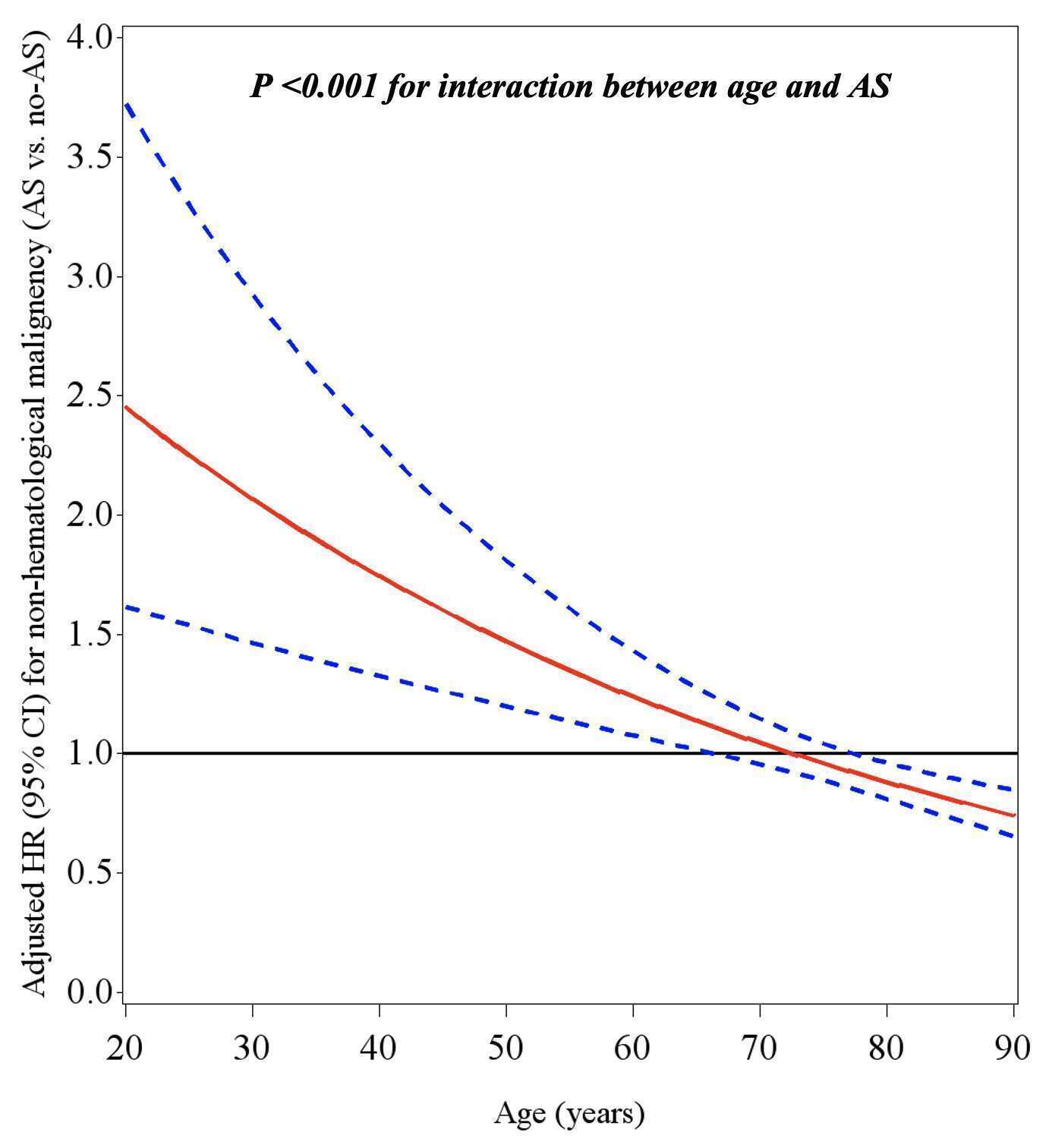
Increased risk of non-hematological cancer in young patients with aortic stenosis: a retrospective cohort study
2Community Medicine and Epidemiology, Lady Davis Carmel Medical Center, Israel
3Cardiology, Rabin Medical Center, Israel
4Cell Biology and Cancer Science, Technion, Israel
Background: We have previously reported an increased risk for non-hematological malignancies in young patients with moderate or severe aortic stenosis (AS). These findings were the result of a post-hoc analysis from a large echocardiography database and needed verification. Our aim was to determine, using a different study population, whether young patients with AS are at increased risk for cancer.
Methods: A large echocardiographic database was used to identify patients (age≥20 years) with moderate or severe AS (study group) and patients without aortic stenosis (comparative group). The new occurrence of non-hematological malignancies was determined after the index date (first echo with moderate or severe AS or first recorded echo in the control group).
Results: The final study group included 7,013 patients with AS and 98,884 without AS. During a median follow-up of 6.9 years (3.0-11.1) there were 10,705 new cases of non-hematological cancer. The crude incidence rate of cancer was higher in AS compared to non-AS patients (22.3 vs. 13.7 per 1,000 patient-year, crude HR 1.58 (95%CI 1.46-1.71). After adjustment for relevant covariates, there was no difference between groups (HR 0.93, 95% CI 0.86-1.01). Only patients in the lowest age quartile (20-49.7 years), had an increased adjusted risk of cancer (HR 1.91, 95%CI 1.08-3.39). The HR for the risk of cancer in AS was inversely proportional to age (PFigure).
Conclusion: Young patients with moderate or severe AS are at increased risk for cancer. Cancer surveillance should be considered for young patients with AS.

Powered by Eventact EMS